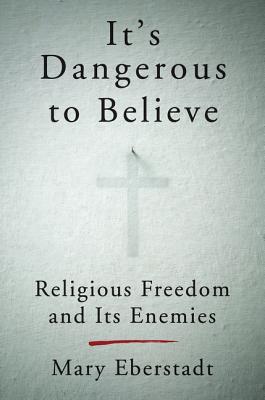What do you think?
Rate this book


192 pages, Hardcover
First published June 21, 2016
Rejoice and be glad, for your reward is great in heaven, for so they persecuted the prophets who were before you.
“You have heard that it was said, ‘An eye for an eye and a tooth for a tooth.’ But I say to you, Do not resist the one who is evil. But if anyone slaps you on the right cheek, turn to him the other also. And if anyone would sue you and take your tunic, let him have your cloak as well. And if anyone forces you to go one mile, go with him two miles. Give to the one who begs from you, and do not refuse the one who would borrow from you.
Repay no one evil for evil, but give thought to do what is honorable in the sight of all. If possible, so far as it depends on you, live peaceably with all. Beloved, never avenge yourselves, but leave it to the wrath of God, for it is written, “Vengeance is mine, I will repay, says the Lord.” To the contrary, “if your enemy is hungry, feed him; if he is thirsty, give him something to drink; for by so doing you will heap burning coals on his head.” Do not be overcome by evil, but overcome evil with good.
This is a gracious thing, when, mindful of God, one endures sorrows while suffering unjustly. (1 Peter 2:19)
If when you do good and suffer for it you endure, this is a gracious thing in the sight of God. (2:20)
Do not repay evil for evil or reviling for reviling, but on the contrary, bless. (3:9)
If you should suffer for righteousness’ sake, you will be blessed. (3:14)
It is better to suffer for doing good, if that should be God’s will, than for doing evil. (3:17)
Rejoice insofar as you share Christ’s sufferings, that you may also rejoice and be glad when his glory is revealed. (4:13)
If you are insulted for the name of Christ, you are blessed. (4:14)
If anyone suffers as a Christian, let him not be ashamed, but let him glorify God in that name. (4:16)
Let those who suffer according to God’s will entrust their souls to a faithful Creator while doing good. (4:19)
Baby Boomers or Baby Boomers or Gen-Xers (like myself)—will find [Tinder’s] vision of dating as a series of technologically facilitated one-off hook-ups with near-strangers to be pretty appalling. I know I do. There’s just one problem: In order for this reaction to amount to more than an old fogey’s sub-rational expression of disgust at the behavior of the young, it has to make reference to precisely the kind of elaborate account of morality—including binding standards of human flourishing and degradation—that liberals have worked to jettison, in the name of sexual liberation, for the past half-century.
[Imported automatically from my blog. Some formatting there may not have translated here.]
This relatively short book by Mary Eberstadt documents the efforts here in the US and elsewhere to delegitimize traditional Christian beliefs, to deny their believers an equal place in the public arena, and (what's more) to ostracize and exile those believers from positions of responsibility in private and public institutions.
Ms. Eberstadt explores a lot of case studies to support her views, most of which will be familiar to people following the news. There's Brendan Eich, forced out as Mozilla CEO when it was revealed that he backed the Proposition 8 ballot initiative against same-sex marriage. There's the Obama Administration's attempt to force the Little Sisters of the Poor to provide "contraception coverage" to their employees. There's the effort to compel Catholic Charities to offer adoption services to same-sex couples. Various efforts to restrict/ostracise religious home schooling. And more.
It's a tough life out there for a conservative Christian, in other words. Eberstadt's anecdotes are many and telling.
I think her argument is slightly off-center; there is some hostility to Christianity, but it drops off significantly for the "respectable" fraction of believers; you know, the ones who mix in a healthy dose of Progressivism and avoid saying much about sin when it comes to matters dealing with the naughty bits.
And (for example) James Damore found himself out of a sweet Google job, not because he was too religious, but because he dared to utter heresies against the Progressive social justice gospel of diversity and inclusion.
So I suspect that it's not Christianity per se that gets one in trouble; it's one's dissent from Progressive orthodoxy that brings out the witch hunt.
That said, after adjusting the target, Eberstadt makes a lot of sense that we need to bring back a modicum of respect into the argument, a willingness to deal with opinions that some might find wrong-headed, in order to (say) put babies into adoptive homes more efficaciously.